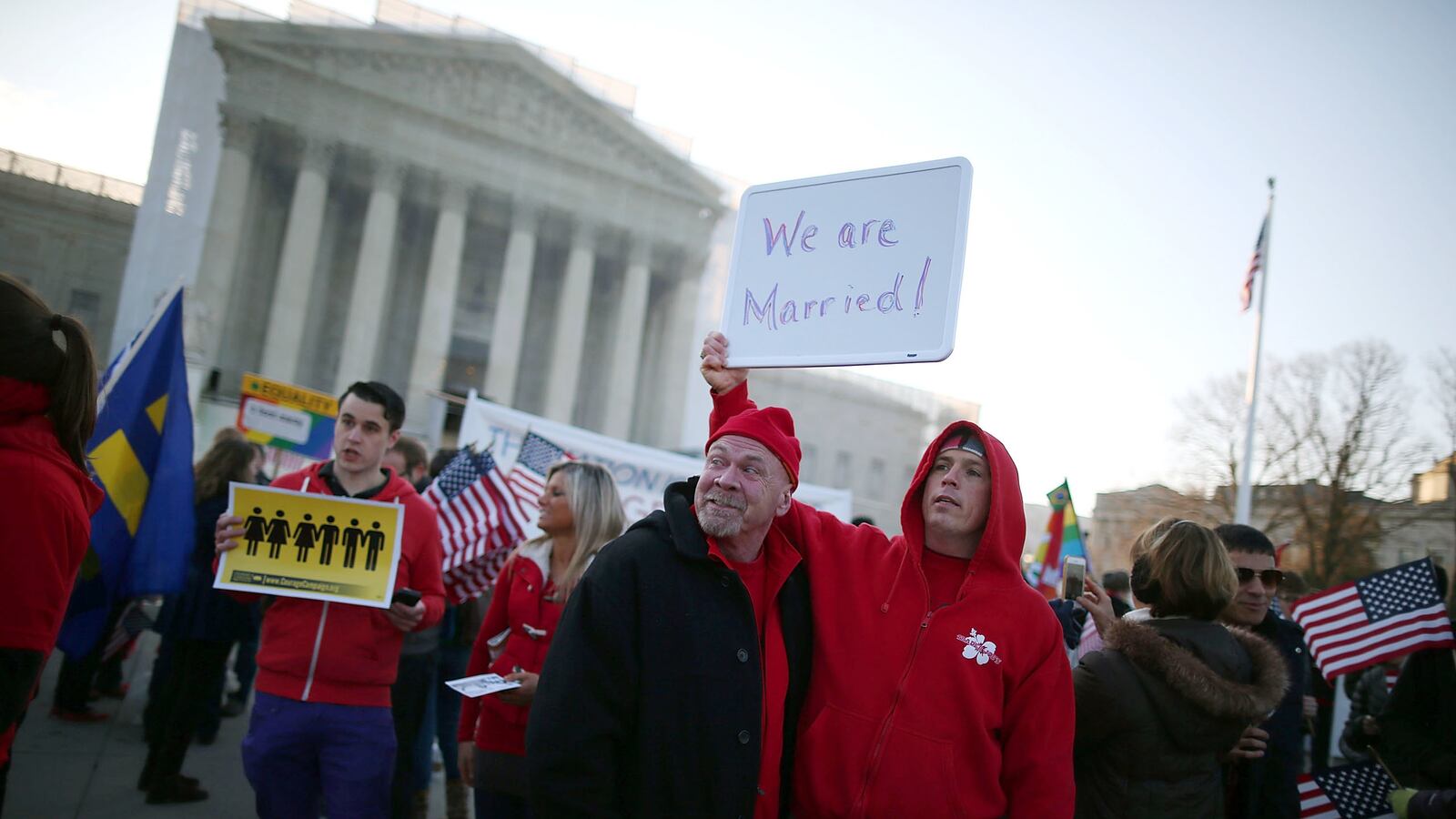The tea-leaf reading is well underway following Tuesday morning’s oral arguments at the Supreme Court in the case of Hollingsworth v. Perry—better known as the Prop 8 case, which is considering whether California voters unconstitutionally denied same-sex couples the right to marry.

If the justices decide to uphold the lower-court decision that Prop 8 was indeed unconstitutional, it will surely be decried by many on the right as an example of “judicial activism” or, better, “legislating from the bench.” Supporters of same-sex marriage will retort that marriage is a fundamental constitutional right that shouldn’t be subject to the democratic process.
But there’s a stronger argument for letting same-sex marriage be legal in California than invoking inherently controversial claims about what courts should or shouldn’t recognize as fundamental rights. Far from undermining the democratic process, legalizing same-sex marriage in California would honor it—and the justices wouldn’t have to say a word either way on the merits of the issue. (The justices spent much of the oral argument quizzing the lawyers in the case about “standing,” which is law talk for whether a court ought to dismiss the suit without regard to the legal issues ordinary people actually care about.)
Consider the history of SSM in the state: In 2005 and 2007, both houses of the California legislature voted to make same-sex marriage legal. Gov. Arnold Schwarzenegger claimed he didn’t sign those bills only because the constitutionality of a previous California initiative, Proposition 22—which restricted marriage to opposite-sex couples—was being litigated in the California courts, and he believed the issue ought to be decided there, or by another state initiative.
The California Supreme Court invalidated Prop 22 in 2008, briefly making same-sex marriage legal in the state. Proposition 8, which reversed the state supreme court’s ruling, passed by a slim margin that November, leading to the litigation now before the U.S. Supreme Court.
There are, however, a couple of crucial additional details to this story. First, when the constitutionality of Prop 8 was challenged in federal court, the state of California, via the decisions of Gov. Schwarzenegger and his successor, Jerry Brown, refused to defend the proposition in those lawsuits.
Second, and not coincidentally, a drastic shift has taken place among California voters regarding their attitudes toward gay marriage. When Prop 22 was enacted in 2000, it passed with 61 percent of the vote. Five and a half years ago, Prop 8 was approved by 52 percent of California voters—less than for Prop 22, but still a majority.
Now, the most recent polls indicate that California voters support same-sex marriage by a nearly two-to-one margin. (Aside from being a remarkably quick public-opinion shift in its own right, this also helps explain why the state isn’t defending Prop 8 in federal court.)
So in what sense would upholding Prop 8 be a victory for democracy? Only in the extremely narrow sense that voters approved, by a slim margin, a statewide ballot initiative back in 2008. On the other hand we live in a representative democracy, featuring a separation of powers between three branches of government, and all three of California’s branches of government—its legislature, its executive branch, and its courts—have now made it clear that they favor legalizing same-sex marriage.
When one also considers that a large majority of Californians appear to agree, there’s a strong argument to be made that respect for democratic values—and not some abstruse constitutional argument about “fundamental rights”—counsels in favor of upholding the federal district court’s order invalidating Prop 8.
This, I believe, is what the Supreme Court will do, without reaching any conclusion about whether there’s a federal constitutional right to same-sex marriage. (It can do this for procedural reasons, by dismissing the suit without issuing a ruling on the merits, which is what all the squabbling about “standing” was about.) Doing so would, under these particular circumstances, be a victory for, of all things, democracy.




